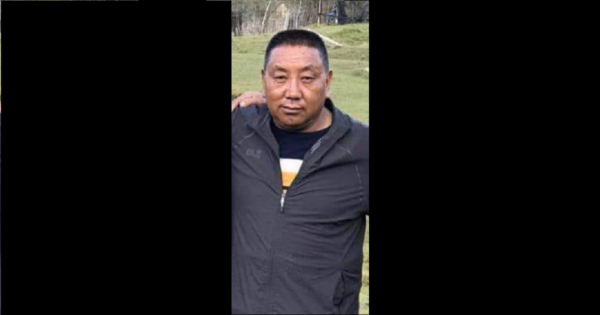A Tibetan monk who served eight years in prison for staging a protest against Chinese policies towards the Dalai Lama and Tibet died recently in his home village near the Tibetan capital of Lhasa.
Tsering Bagdro who died April 26, 2020 in Gyama Village, Meldrogongkar County, was 51. Two sources who wish to remain anonymous confirmed the information about his death to the International Campaign for Tibet.
Tsering Bagdro joined the Ganden Monastery when he was young and began religious study.

In the 1990s, Chinese authorities in Tibet, while implementing political reeducation campaigns like “Love your Country, Love your Religion” and promoting socialist thought, imposed restrictions on Tibetans, including demanding the removal of portraits of the Dalai Lama from monasteries.
Tsering Bagdro and other Tibetans staged a demonstration in Lhasa on June 10, 1992 in protest. Holding the Tibetan national flag in their hands, they proclaimed slogans calling for the long life of the Dalai Lama and saying that Tibet is independent, Tibet belongs to Tibetans and the Chinese should quit Tibet.
They were immediately arrested by the Public Security Bureau and held in detention at the infamous Gutsa Detention Center. After months of interrogations and ill treatment of Tsering Bagdro in detention, the Lhasa Intermediate People’s Court in November 1992 sentenced him to eight years’ imprisonment and deprivation of political rights for two years.
He served the prison term in the notorious Drapchi Prison’s Unit 5. According to a former political prisoner who is now in exile and wishes to remain anonymous, Tsering Bagdro was considered the ringleader and given the longest sentence of anyone involved. Three other colleagues were also sentenced at the same time to seven, six and five years’ imprisonment.
The former political prisoner recalls Tsering Bagdro as someone kindhearted who was liked by all other prisoners.
Upon completion of his prison term, Tsering Bagdro was released on June 9, 2000. However, he remained under surveillance until his death.

